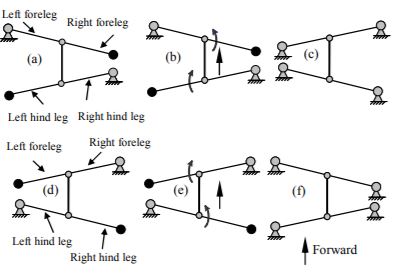A Small Window-Cleaning Robot for Domestic Use: Difference between revisions
Created page with '<p>This paper describes a mini window-cleaning robot (WCR) that was specially designed for utilizing in domestic environment. The movement of this small robot is done by 2 shafts…' |
No edit summary |
||
| Line 5: | Line 5: | ||
<p>One of the big problems encountered with this prototype for a cleaning robot, was the small movement speed. The robot was only able to move 200mm per minute.</p> | <p>One of the big problems encountered with this prototype for a cleaning robot, was the small movement speed. The robot was only able to move 200mm per minute.</p> | ||
<p>The experimental results indicate that the robot can move forward and backward in the vertical, horizontal and other arbitrary direction on the surface of the window glass using four small suction cups. Therefore, the present robot can be potentially used for small-scale cleaning such as the window glass in our home.</p> | <p>The experimental results indicate that the robot can move forward and backward in the vertical, horizontal and other arbitrary direction on the surface of the window glass using four small suction cups. Therefore, the present robot can be potentially used for small-scale cleaning such as the window glass in our home.</p> | ||
[[File:Capture22.JPG|300px]] | |||
Latest revision as of 10:54, 26 March 2018
This paper describes a mini window-cleaning robot (WCR) that was specially designed for utilizing in domestic environment. The movement of this small robot is done by 2 shafts that function as ‘legs’ in combination with 4 suction cups for locomotion. Two servo motors serve for rotational drive of two beams separately. Two suction cups with a height of 8 mm are attached to both ends of the beam.
The way of movement can be separated into six segments, which together form the total movement of the robot. The figure below shows these six steps, essentially it crawls as a spider alternating the suction done by the four cups by using vacuum release valves.
The vacuum supply solenoid valve, directly connected to the vacuum pump, is used for the air circuits switching of the robots suction cups. It can be set to be open or close by a coil. The vacuum release solenoid valves are used for letting suction cup pairs open to atmosphere or not. Each vacuum release valve controls a pair of two suction cups.
A rotational wiper equipped at the rear of the chassis cleans the surface of window glass whilst the robot is moving over the surface. This wiper is made out of a cylindrical sponge which rotates at a high rpm and is soaked in cleansing liquid. With this way of cleaning the results seemed to be surprisingly positive.
One of the big problems encountered with this prototype for a cleaning robot, was the small movement speed. The robot was only able to move 200mm per minute.
The experimental results indicate that the robot can move forward and backward in the vertical, horizontal and other arbitrary direction on the surface of the window glass using four small suction cups. Therefore, the present robot can be potentially used for small-scale cleaning such as the window glass in our home.
